Apoquel 16 mg Tablets for Dogs: Complete Guide to Uses, Dosage & Safety
Skin conditions in dogs are not just uncomfortable—they can become serious health concerns if left untreated. From constant scratching to chronic inflammation, allergic dermatitis can disrupt a dog’s well-being and quality of life. Apoquel 16 mg Tablets for Dogs, containing the active ingredient oclacitinib, have emerged as a breakthrough in the management of itching and allergic skin diseases in canines. This blog provides a deep dive into Apoquel’s uses, benefits, dosage guidelines, administration, safety, and more.
What Is Apoquel 16 mg?
Apoquel 16 mg Tablets are an oral medication designed specifically for dogs suffering from itching and inflammation associated with allergic dermatitis and atopic dermatitis. The active component, oclacitinib maleate, is a Janus kinase (JAK) inhibitor that effectively reduces cytokines involved in the itch and inflammatory pathway.
Indications: When Is Apoquel 16 mg Prescribed?
Veterinarians commonly prescribe Apoquel for the following conditions:
1. Allergic Dermatitis
- Caused by allergens such as food, fleas, and environmental triggers (pollen, dust mites).
- Symptoms: Intense itching, red skin, lesions, hair loss.
2. Atopic Dermatitis
- A chronic, inflammatory skin condition caused by environmental allergens.
- Apoquel relieves symptoms like constant scratching, skin thickening, and secondary infections.
3. Pruritus (Itching) of Undetermined Origin
- Apoquel can also help control non-specific itching in dogs where the underlying cause is not immediately known.
How Does Apoquel Work?
Apoquel functions by selectively inhibiting the activity of JAK1 and JAK3 enzymes, which are involved in transmitting signals of itching and inflammation from the immune system. Unlike corticosteroids, Apoquel targets specific pathways, offering relief without immunosuppressing the entire immune system.
Benefits of Apoquel 16 mg Tablets
- Rapid relief: Begins working within 4 hours, with peak efficacy in 24 hours.
- Non-steroidal: No long-term steroid side effects like weight gain or increased thirst.
- Safe for long-term use: Effective for chronic skin conditions.
- Improves quality of life: Less itching means better sleep, energy, and comfort.
Dosage Guidelines for Apoquel 16 mg Tablets for Dogs
Proper dosing of Apoquel 16 mg Tablets is crucial to ensure therapeutic effectiveness while minimizing the risk of side effects. The dosage is based on the dog’s body weight and follows a two-phase regimen: an initial phase for rapid control of symptoms, followed by a maintenance phase for long-term management.
Apoquel 16 mg Dosage for Dogs
| Dog’s Weight (kg) | Total Dose (mg) | Suggested Tablet(s) | Dosing Frequency | Phase |
| 3.0 – 4.4 | 1.6 – 2.6 mg | Use 3.6 mg tablet | Twice daily | Initial (≤14 days) |
| 4.5 – 5.9 | 1.8 – 3.5 mg | Use 3.6 mg tablet | Twice daily | Initial (≤14 days) |
| 6.0 – 8.9 | 2.4 – 5.3 mg | Use 5.4 mg tablet | Twice daily | Initial (≤14 days) |
| 13.5 – 19.9 | 5.4 – 11.9 mg | 1 × 5.4 mg + 1 × 3.6 mg or 1 × 16 mg | Twice daily | Initial (≤14 days) |
| 20.0 – 29.9 | 8.0 – 17.9 mg | 1 × 16 mg tablet | Twice daily | Initial (≤14 days) |
| 30.0 – 44.9 | 12.0 – 26.9 mg | 1 × 16 mg + 1 × 5.4 mg tablet | Twice daily | Initial (≤14 days) |
| 45.0 – 59.9 | 18.0 – 35.9 mg | 2 × 16 mg tablets | Twice daily | Initial (≤14 days) |
| 60.0 – 80.0 | 24.0 – 48.0 mg | 2 × 16 mg + 1 × 5.4 mg tablet | Twice daily | Initial (≤14 days) |
After 14 days, reduce to once daily at the same weight-based dose.
Key Administration Tips
- Timing: Doses should be administered approximately 12 or 24 hours apart depending on the phase.
- Splitting tablets: Tablets are not scored, so exact splitting is not recommended. Use the correct combination of tablet strengths instead.
Important Dosage Considerations
- Dogs with liver or immune conditions should be monitored more frequently.
- Regular check-ups are advised during long-term therapy.
Apoquel 16 mg: Known Side Effects and Long-Term Safety in Dogs
Apoquel 16 mg, containing oclacitinib, is known for its excellent safety profile, especially when compared to traditional corticosteroids. However, like all medications, it may cause side effects in some dogs. Understanding the potential risks ensures responsible and effective use.
General Safety Overview
- Fast-acting and well-tolerated: Most dogs show rapid improvement in itching and inflammation within 4–24 hours.
- Suitable for chronic use: Can be administered for months or even years with ongoing veterinary monitoring.
Common Side Effects
These are typically mild and transient, especially during the first weeks of treatment:
| Side Effect | Frequency | Notes |
| Vomiting | Occasionally | Usually self-limiting |
| Diarrhea | Occasionally | Often resolves without stopping treatment |
| Anorexia (loss of appetite) | Rarely | Monitor food intake |
| Lethargy | Occasionally | Monitor activity levels |
| Skin infections | Rarely | Due to immune modulation, minor infections may occur |
Less Common or Serious Side Effects
Though uncommon, some dogs may experience more serious issues, especially with long-term or high-dose use:
| Side Effect | Description |
| Secondary skin or ear infections | Mild suppression of immune response may make dogs more prone to bacterial or yeast infections. |
| Demodicosis (mange) | In dogs predisposed to demodex, this condition may be triggered. |
| Elevated liver enzymes | Liver values may rise, especially in dogs with preexisting liver issues. |
| Neoplastic conditions (tumor development) | Some studies have reported increased incidence of benign or malignant tumors during long-term treatment; causality is not fully established. |
| Bone marrow suppression (very rare) | May lead to mild drops in white blood cells or platelets in rare cases. |
Contraindications: When Not to Use Apoquel
- Puppies under 12 months of age
- Dogs with serious or chronic infections
- Dogs with known hypersensitivity to oclacitinib
- Breeding, pregnant, or lactating females
Apoquel may interfere with immune surveillance, making it unsuitable for dogs with cancer, compromised immune systems, or active infections.
Monitoring During Long-Term Use
For dogs on Apoquel for several months or years, veterinarians may recommend periodic testing:
- Complete blood count (CBC)
- Serum chemistry (liver/kidney function)
- Skin examinations to check for infections or tumor growth
- Urinalysis if signs of urinary tract infection arise
Drug Interactions
Apoquel has been safely used in combination with:
- NSAIDs (e.g., Carprofen)
- Antibiotics
- Flea and tick preventives
- Antihistamines
However, avoid combining with other immunosuppressants (like cyclosporine or corticosteroids) unless advised by a veterinarian.
Comparing Apoquel with Alternatives
| Feature | Apoquel 16 mg | Prednisone | Cytopoint |
| Onset of action | Within 4 hours | 24–48 hours | 24–72 hours |
| Administration | Oral tablet | Oral tablet | Injectable |
| Duration | Daily | Daily/Alternate days | Monthly |
| Side effects | Mild/moderate | More frequent | Very few |
| Steroid-free | Yes | No | Yes |
Clinical and Research-Based Information
Apoquel (oclacitinib maleate) is a selective Janus kinase (JAK) inhibitor developed by Zoetis, a global leader in animal health. Since its introduction, Apoquel has been studied extensively in both clinical trials and real-world veterinary practices to evaluate its safety, efficacy, and tolerability in dogs suffering from chronic pruritus and allergic skin diseases.
Mechanism of Action: Targeted Cytokine Inhibition
Oclacitinib works by inhibiting Janus kinase (JAK) enzymes, particularly JAK1 and JAK3, which are critical in signaling pathways for cytokines involved in:
- Pruritus (itching) – such as interleukin (IL)-31
- Allergic inflammation – such as IL-4, IL-6, IL-13
- Hematopoiesis and immune function – minimal effects on JAK2 help preserve broader immune function
This selectivity allows Apoquel to relieve itching and inflammation quickly without the systemic immunosuppressive effects commonly seen with corticosteroids.
Key Clinical Trials and Studies
1. Zoetis-Sponsored Randomized Clinical Trials (2013)
- Results:
- Significant reduction in pruritus within 4 hours of administration
- Improvement in skin lesions observed within 3–7 days
- Comparable efficacy to prednisone over 30 days
- Conclusion: Apoquel was effective and well tolerated in managing pruritus associated with allergic dermatitis and atopic dermatitis.
2. Long-Term Safety and Efficacy Study (2015)
Study Design: 24-month open-label field study in 247 dogs.
- Findings:
- Dogs remained stable or improved on Apoquel with once-daily
- Adverse events were generally mild (vomiting, diarrhea).
- No cumulative toxicity or hormonal disruptions observed.
Conclusion: Apoquel was found to be safe for long-term use, with high owner satisfaction and improved quality of life.
3. Apoquel vs. Prednisone Comparative Study
Design: Head-to-head clinical trial comparing Apoquel 0.6 mg/kg BID vs Prednisone 0.5 mg/kg SID
- Findings:
- Apoquel had faster onset of action (within 4–6 hours) compared to prednisone.
- Apoquel caused fewer side effects, especially in long-term follow-up.
- Prednisone showed more frequent signs of PU/PD (increased thirst/urination), panting, and lethargy.
Conclusion: Apoquel is more suitable for long-term control of canine allergic dermatitis with fewer complications.
Real-World Evidence & Post-Market Surveillance
Since Apoquel’s release in 2013:
- Over 13 million dogs have been treated globally.
- Reports of increased infections or tumor growth are inconclusive and often tied to preexisting conditions.
Zoetis continues to monitor safety through the Zoetis Pharmacovigilance Program and updates label warnings based on cumulative global feedback.
Pharmacokinetics and Bioavailability
- Oral bioavailability: ~89% (fast and efficient absorption)
- Time to peak plasma concentration (Tmax): 1 hour
- Elimination half-life: ~4 hours
- Metabolism: Hepatic, followed by renal and fecal elimination
Apoquel’s short half-life explains the need for twice-daily dosing initially, then transition to once-daily for maintenance.
Veterinary Dermatology Consensus Statements
Leading veterinary bodies, including the American College of Veterinary Dermatology (ACVD), support the use of Apoquel as a first-line therapy for:
- Acute flares of atopic dermatitis
- Maintenance treatment of chronic allergic skin disease
- Alternative to corticosteroids and cyclosporine
Conclusion
Apoquel 16 mg Tablets have become a cornerstone in canine dermatological care. With rapid action, minimal side effects, and suitability for long-term use, Apoquel is a trusted solution for managing the torment of chronic itching and allergic dermatitis in dogs.Whether your dog is scratching due to seasonal allergies or battling ongoing atopic dermatitis, Apoquel offers safe, science-backed relief. Always consult your veterinarian before starting treatment, and follow dosing instructions closely. Apoquel 16 mg Tablets for Dogs represent a modern, targeted approach to managing allergic skin conditions such as atopic dermatitis and allergic dermatitis.







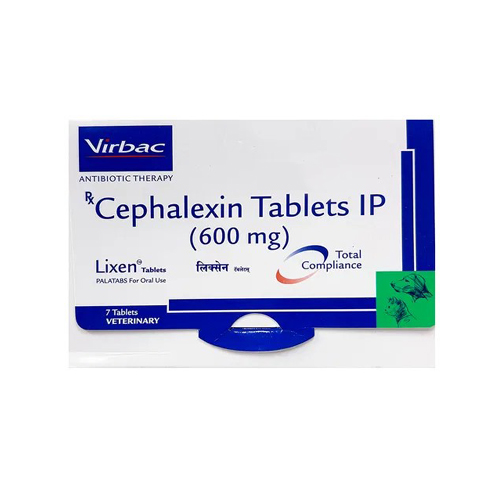
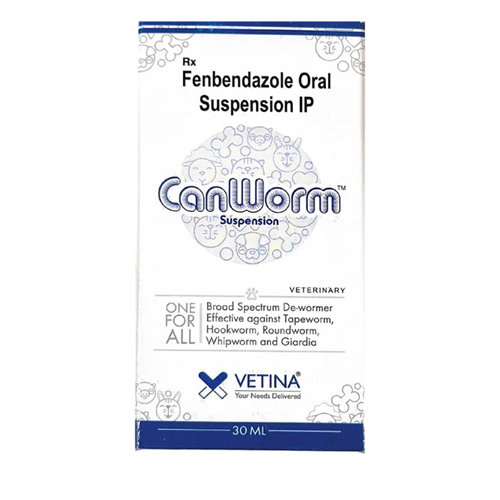


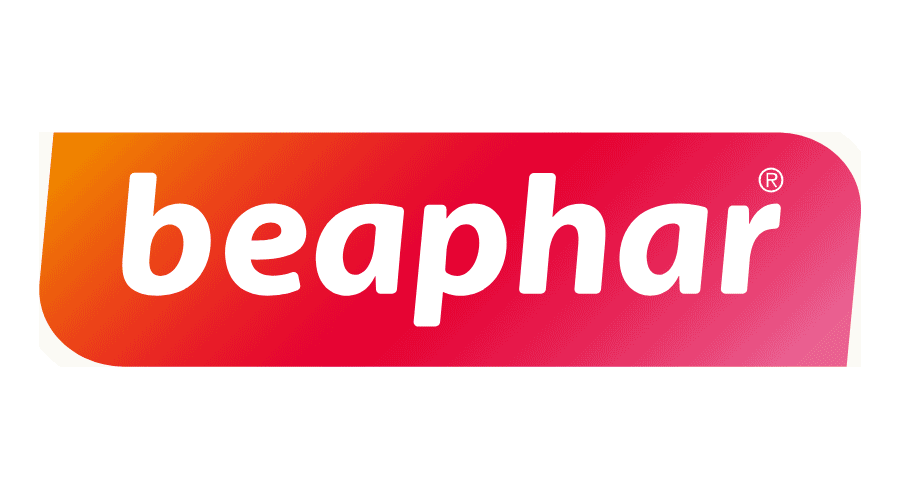
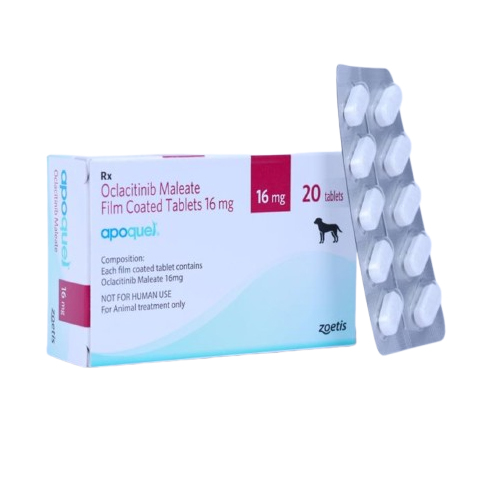
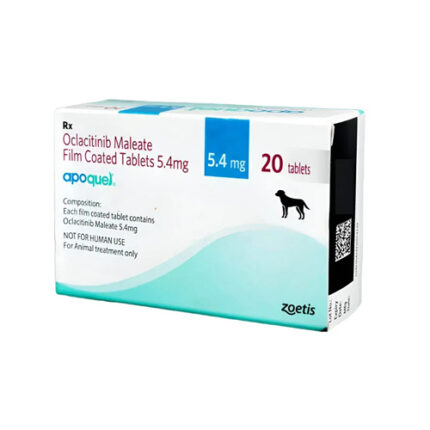
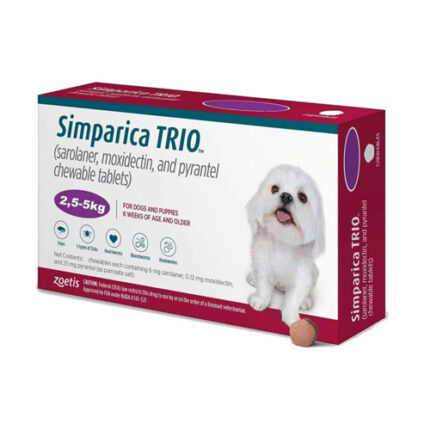
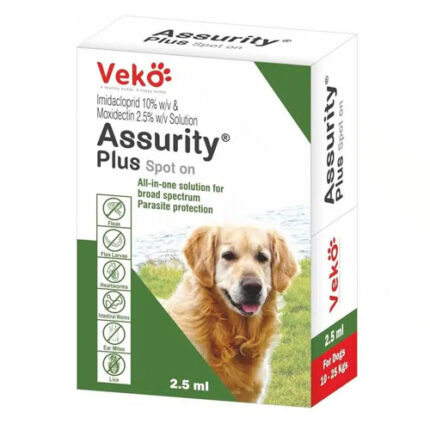
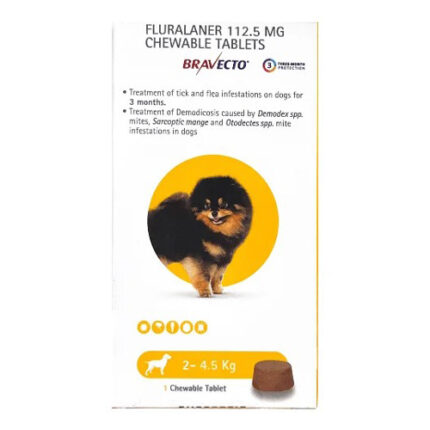
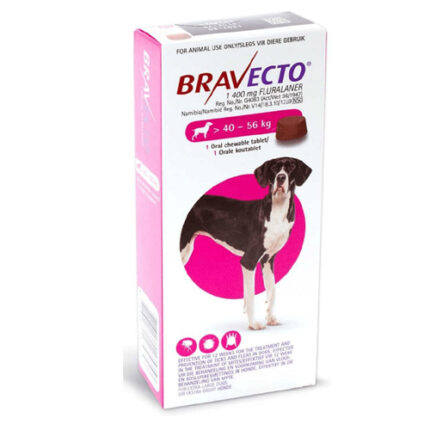
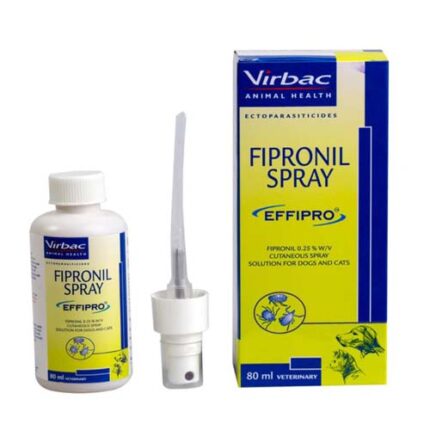
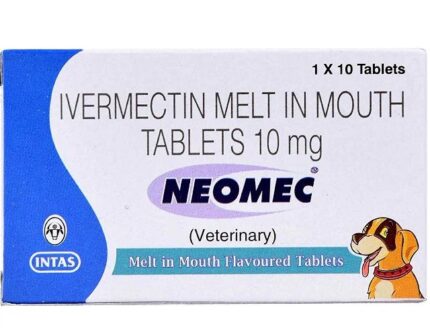
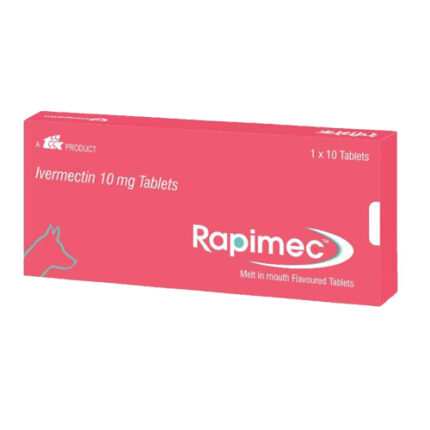
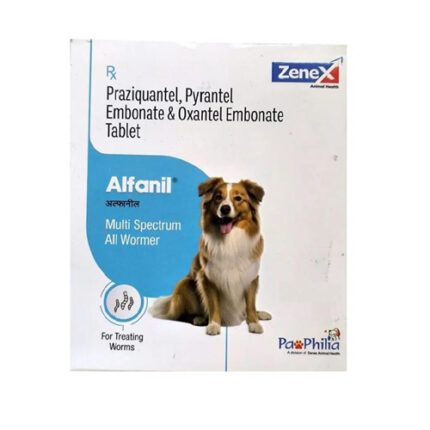

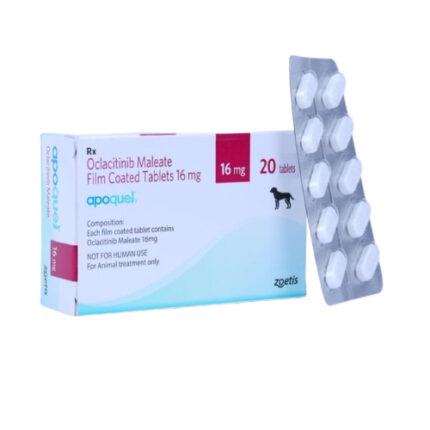
Reviews
There are no reviews yet.